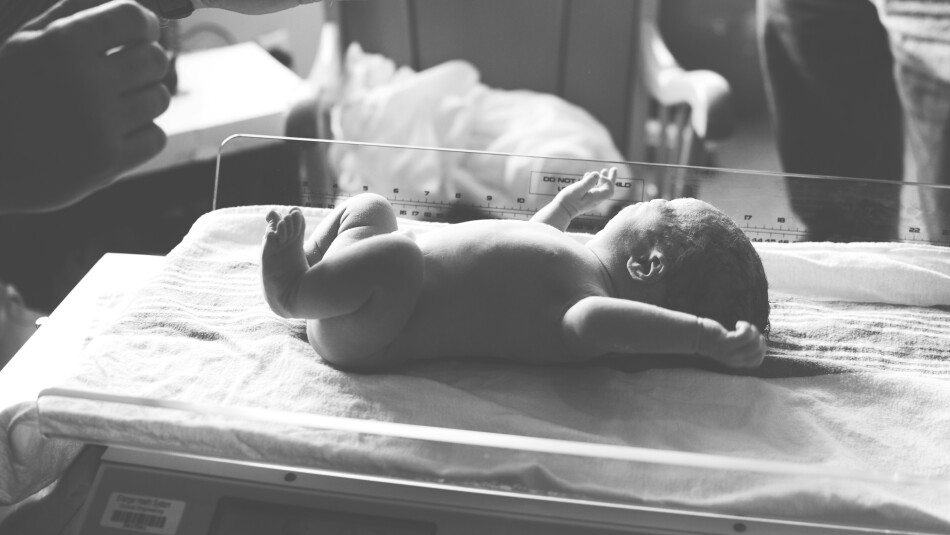
Shadan Mahmoud, 36, is still questioning why two of her five pregnancies ended in miscarriage. While the question remains unanswered, she advises women to monitor their health regularly.
She resides in a remote village in Garmian Administration, part of Sulaimaniyah Northern Province. The first time she gave birth, proceeded without complications, but between 2017 and 2018, two of her babies passed away at two and three months old of pregnancy.
"For both babies, the doctors discovered that their hearts had stopped beating. I didn't understand why. They explained that my blood had thickened and affected the babies," Shadan shared.
Shadan and her husband do not have any chronic illnesses, particularly blood clotting issues, which has left Shadan feeling anxious.
While her fourth baby was born without any issues, her fifth baby was miscarried 20 days before birth, adding to Shadan's challenges.
Garmian province, where Shadan resides with a population of 343,594 people, has been experiencing low rainfall, high summer temperatures, and dust storms in recent years, leading to the evacuation of some villages due to water scarcity.
According to the Sheray Naqib Teaching Hospital, 1,664 women have had abortions in the past five years, with 131 abortions occurring in the first five months of this year. These numbers do not account for women who miscarry without seeking medical attention.
"A few days before my third miscarriage, I felt extremely upset and hot. My body temperature was very high. I kept bathing and even resorted to the air cooler. When I visited the doctor, he informed me that my baby had died due to dehydration," Shadan recounted.
Shadan always envisioned giving birth, holding, and nursing her babies, but only two out of her five pregnancies came to term.
High temperatures are identified as a contributing factor to miscarriages, as heat directly impacts pregnant women, according to health and environmental experts.
"Climate change, environmental pollution, rising temperatures, and certain cosmetics are among the leading causes of miscarriages, along with alterations in food production, including the use of chemicals in agriculture," Banaz Ahmad, the hospital director, told KirkukNow.
Kaziwa Hussein, a gynecologist and obstetrician, emphasized that pregnant women and their babies are the primary victims of rising temperatures and environmental pollution, which directly affect the genetics and chromosomes of the fetus.
Chromosomal abnormalities can lead to changes in the baby's facial features, body structure, and brain development. Many of these abnormalities result in Down syndrome, the most common chromosomal disorder.
"The high temperatures can cause pregnant women to become dehydrated, ultimately leading to miscarriage," she explained.
Temperatures in Iraq have reached as high as 50 degrees Celsius in recent years, with Khanaqin district adjacent to Garmian administration recording the world's highest temperature of 51 degrees Celsius last year.
The rise in temperature coincides with the insufficient greenery in Garmian, as increasing vegetation has a cooling effect, according to environmental experts.
As of 2023, the green spaces in Garmian stands at only 5.7%, significantly below the global standard of 30%.
Hussein stressed that polluted air and high temperatures have additional adverse effects on pregnant women, including premature contractions, early labor, low blood pressure, headaches, and leg swelling. Prolonged exposure to high temperatures can result in fetal deformities, growth delays, dehydration, and reduced fetal movement due to decreased blood and oxygen supply.
Shaima Hamid, 32, another resident of Garmian, experienced a miscarriage at fifth month of pregnancy in July 2021.
"I was feeling extremely hot and consumed a lot of cold water," Shaima recalled.
She refrained from seeking medical help out of fear of being told to undergo an abortion, enduring severe pain at home until she miscarried.
“I lost all my teeth. I had a severe pain for three days, then the Ultrasound physician told me my baby is dead.”
After the miscarriage, she was treated in the hospital where her uterus was cleaned.
Following the miscarriage, Shaima gave birth to an eight-month-old baby, but the child faced developmental delays and required ongoing monitoring by medical professionals.
Anwar Abdulaziz, the president of the Kifri Environmental Protection Organization and an agricultural engineer, highlighted that aside from rising temperatures, a consequence of climate change, air and environmental pollution from smoke and improper waste disposal in Garmian are prevalent issues.
He emphasized the importance of continuous environmental and health education, especially for pregnant women, and called for government intervention through the Ministry of Health to support pregnant women and create a conducive environment for childbirth and fetal care.
"Pregnant women in rural areas should take precautions against heat and dust, avoid using cow dung for cooking as it emits toxic methanol gas that can harm the fetus," he advised.
Dr. Kaziwa recommended that pregnant women spend more time indoors during the summer to stay cool and limit social interactions.
"If they must go out in the sun, they should wear loose, lightweight clothing, drink plenty of water, and consume hydrating fruits to prevent dehydration due to heat."